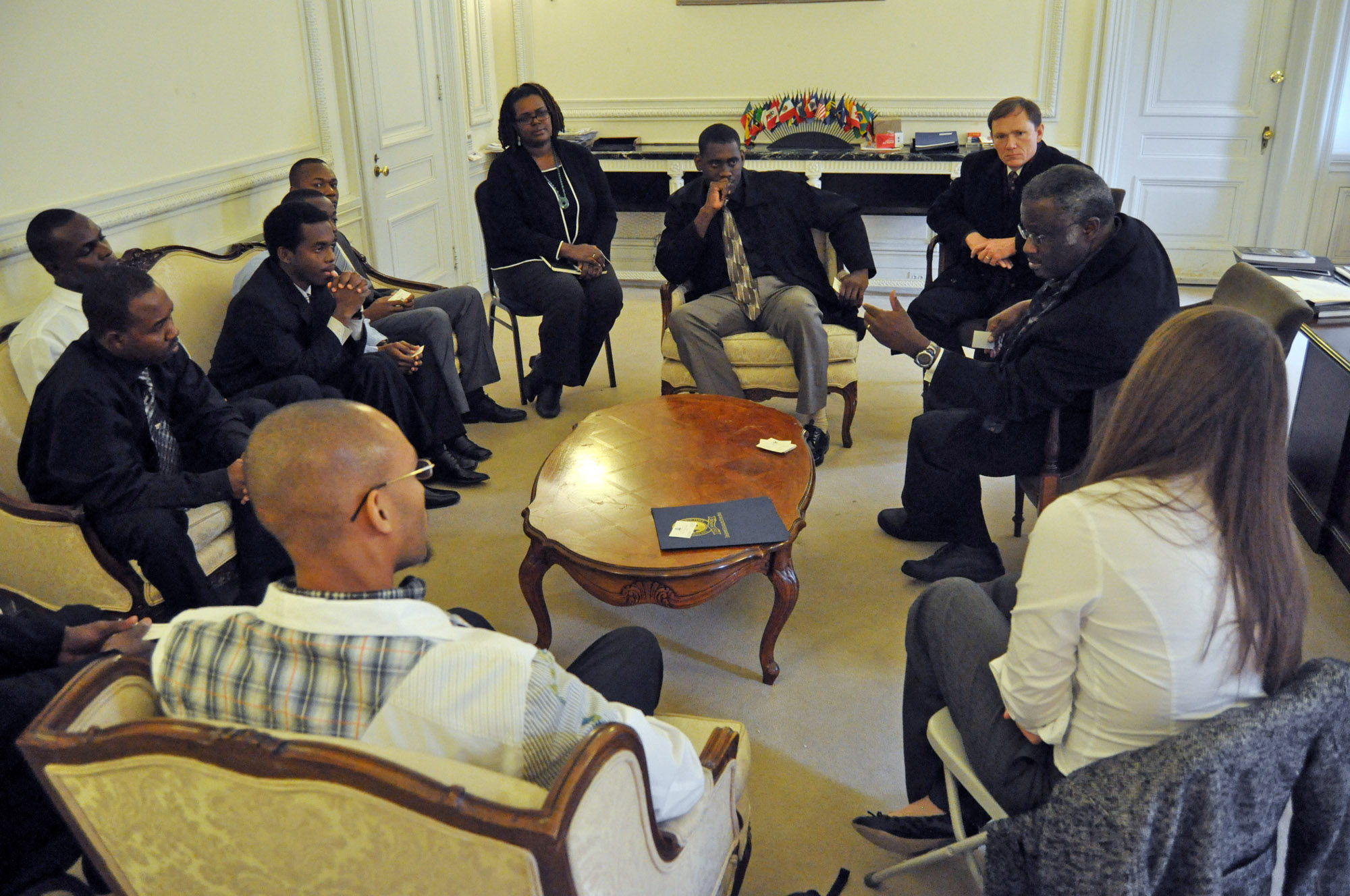Haitians earn degrees through Virginia Tech internship

When his university collapsed in Haiti’s January 2010 earthquake, James Paul found himself unable to finish his studies and receive his civil engineering degree. As a senior near his degree completion, Paul, along with many others, was unable to finish the required senior thesis needed to secure a college degree in Haiti. The earthquake destroyed higher education infrastructure and as many as 200 professors and 6,000 college students were killed.
However, Paul says he found himself at Virginia Tech during the 2010 fall semester as a part of the Virginia Tech-Haitian University Program along with seven other Haitian students. The internship allows Haitians to access faculty and resources to complete their senior theses and receive degrees from their home universities in Haiti. The first eight interns graduated in December, and 12 new interns are expected to be in the program next semester.
The interns pursued a variety of degrees, from civil engineering, electrical engineering, and watershed management, to forestry. In many instances, the interns were placed with faculty already involved in Haiti. Paul was able to base his thesis work off the Ti Peligre Project, a pre-existing Haitian bridge-building effort at Virginia Tech.
In the rural Central Plateau of Haiti, the village of Ti Peligre lies mostly isolated in between two rivers. During the rainy season, the villagers have little access to healthcare or marketplaces to make purchases and sell their crops.
The project began with Bryan Cloyd and Blacksburg Baptist Church’s relationship with a Haitian church near Ti Peligre. Cloyd, the John E. Peterson Jr. Professor of Accounting and Information Systems in the Pamplin College of Business, was involved in the construction of a school in the village, and he assembled a team of students to build a bridge for the community. When the Haitian internship program was established after the earthquake, Paul became a member of that team.
Upon completion of his internship, Paul returned to Haiti to oversee the bridge’s construction.
“With the new techniques learned, and with the support of my supervisors, I can help many countrysides of my country where people have been facing many infrastructure problems, especially in the rainy seasons. With this kind of facility, they will have rapid access to healthcare, schools, and marketplaces to sell their crops with communities in their neighborhood," he said.
The addition of Paul to the team boosted the motivation of the Virginia Tech student members. Another member of the team, Katie Masoero of Marlton, N.J., a senior majoring in civil engineering in the College of Engineering, said having a Haitian on board has given them a better expectation about available materials, workers, and practices in the country.
“This research is not just helping us learn," said Masoero. "It is also about helping a Haitian student to continue to learn as well as changing the lives of a community.”
Chris Cooke of Hampton, Va., a senior majoring in civil engineering in the College of Engineering, said the Haitians are capable of overcoming challenges and accomplishing their goals so long as they have access to the necessary technology.
“This work and the people I have met over the past year have helped me to gain a better understanding of what it means to choose Ut Prosim (That I May Serve) as a way of life," he said
Cloyd said, “The project is a win for the Haitian community receiving the bridge, a win for James, and a win for Virginia Tech.”
The interns here for the fall semester worked to graduate in December. In addition to completing their theses, they attended a University Honors Colloquium about Haiti, where undergraduate students and interns discussed Haitian politics, history, religion, and culture in overlapping conversations of Creole and English. The interns have became involved in the Blacksburg community, with churches, and other organizations making in-kind contributions of furniture, housing needs, and bus passes.
Paul said the most surprising thing about living in Blacksburg has been the involvement of the community in helping Haiti achieve sustainable infrastructure systems even before the earthquake.




